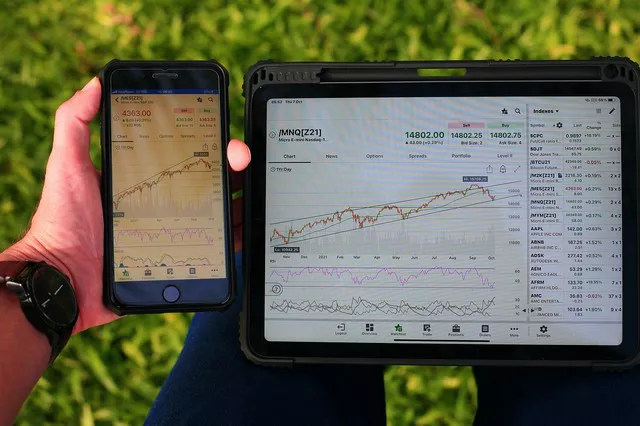Futures contracts play a crucial role in financial markets, enabling participants to hedge risk, speculate on price movements, and gain exposure to various asset classes. Central to futures trading is the process of quoting futures contracts, which involves specifying the terms of the contract, including the underlying asset, expiration date, and price. In this article, we will delve into how futures contracts are quoted, the factors influencing futures prices, and the significance of futures quotes for traders and investors.
The Structure of Futures Contracts
Futures contracts are standardized agreements to buy or sell a specified quantity of an underlying asset at a predetermined price on a future date. These contracts are traded on organized exchanges such as the Chicago Mercantile Exchange (CME) or the Intercontinental Exchange (ICE), where buyers and sellers come together to transact. Each futures contract is characterized by several key components, including:
1. Underlying Asset: The underlying asset is the commodity, financial instrument, or index upon which the futures contract is based. Common underlying assets include agricultural products (e.g., wheat, corn), energy resources (e.g., crude oil, natural gas), metals (e.g., gold, silver), currencies (e.g., euro, Japanese yen), and financial indices (e.g., S&P 500, Nasdaq 100).
2. Contract Size: The contract size specifies the quantity of the underlying asset that is being bought or sold in each futures contract. For example, a crude oil futures contract may represent 1,000 barrels of oil, while a gold futures contract may represent 100 troy ounces of gold.
3. Expiration Date: The expiration date, also known as the delivery date or maturity date, is the date on which the futures contract expires and settlement occurs. Futures contracts are available for various expiration months, allowing traders to choose contracts with different delivery dates based on their trading strategies and market outlook.
4. Contract Price: The contract price, also known as the futures price or the strike price, is the price at which the underlying asset will be bought or sold upon expiration of the futures contract. This price is agreed upon by the buyer and seller at the time the contract is entered into.
See Also: Do futures have spreads like forex?
The Quoting Process for Futures Contracts
Futures contracts are quoted using a standardized format that provides essential information about the contract terms and current market conditions. The quoting process involves specifying the commodity symbol, contract month, and contract price, among other details. For example, a quote for a crude oil futures contract expiring in December may appear as follows: “CLZ21 $70.50.”
1. Commodity Symbol: The commodity symbol identifies the specific commodity underlying the futures contract. Each commodity is assigned a unique symbol or ticker, such as “CL” for crude oil, “GC” for gold, or “ZC” for corn.
2. Contract Month: The contract month indicates the month in which the futures contract expires or settles. Futures contracts are available for multiple expiration months, allowing traders to choose contracts with different delivery dates based on their trading strategies and market outlook.
3. Contract Price: The contract price represents the current market value of the futures contract, expressed in terms of currency per unit of the underlying commodity. For example, a crude oil futures contract may be quoted at $70.50 per barrel, while a gold futures contract may be quoted at $1,800 per troy ounce.
Factors Influencing Futures Prices
Several factors influence the pricing of futures contracts, including supply and demand dynamics, investor sentiment, macroeconomic factors, geopolitical events, and external shocks affecting the underlying asset. Supply and demand dynamics, such as weather conditions, crop yields, production levels, and inventory levels, can impact the supply and consumption of the underlying commodity, influencing its future price trajectory.
Investor sentiment and market expectations also play a significant role in determining futures prices. Bullish sentiment may drive prices higher, while bearish sentiment may lead to price declines, depending on market perceptions of supply and demand dynamics and other factors affecting the commodity’s price. Moreover, macroeconomic factors such as interest rates, inflation, currency movements, and economic indicators can impact futures prices by affecting market fundamentals and investor sentiment.
Geopolitical events and external shocks, such as wars, conflicts, trade tensions, natural disasters, and pandemics, can also influence futures prices by disrupting supply chains, affecting production and consumption patterns, and creating uncertainty in financial markets. Traders and investors need to stay informed about these factors and their potential implications for futures prices to make informed trading decisions.
Significance of Futures Quotes for Traders and Investors
Futures quotes play a crucial role in futures trading, providing traders and investors with essential information about contract terms, current market prices, and trading opportunities. By monitoring futures quotes, traders can identify trends, patterns, and trading opportunities, enabling them to execute trades with precision and agility. Moreover, futures quotes facilitate price discovery and transparency in futures markets, allowing traders to assess market sentiment, liquidity, and trading interest.
Conclusion
In conclusion, understanding how futures contracts are quoted is essential for traders, investors, and market participants seeking to navigate futures markets effectively. By understanding the structure of futures contracts, the quoting process, and the factors influencing futures prices, traders can interpret futures quotes accurately and make informed trading decisions. Whether trading agricultural products, energy resources, metals, currencies, or financial indices, a solid understanding of futures quotes is crucial for success in futures trading.


